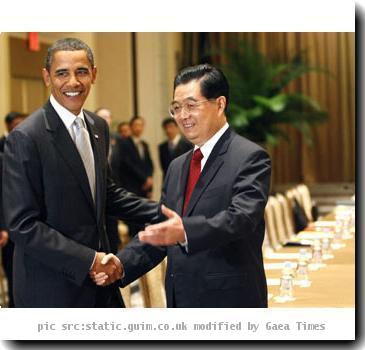Dalai Lama’s envoys hope China will be willing to revisit plan for greater autonomy for Tibet
By Gillian Wong, APWednesday, January 27, 2010
Dalai Lama envoys hope to revisit autonomy plan
BEIJING — Representatives of the Dalai Lama in their first talks with Chinese officials in 15 months are hoping Beijing will reconsider a proposal for greater autonomy for Tibet, the Himalayan region’s self-proclaimed government-in-exile said Wednesday.
Two envoys of the Dalai Lama arrived in China on Tuesday to resume talks on Tibet after the lengthy deadlock, said Chhime R. Chhoekyapa, the Dalai Lama’s secretary, who said he had no further comment. The resumed talks came as a surprise after the acrimony and uncertainty that followed the last meeting in November 2008.
Chinese officials then refused to discuss the status of China-ruled Tibet and insisted that they would only address the return of the Dalai Lama, who fled to exile in India in 1959.
At the last talks, the Dalai Lama’s envoys proposed a way for Tibetans to achieve more autonomy within the framework of the Chinese constitution — a key demand of the minority community. But China apparently rejected the plan, saying it would not allow Tibet the kind of latitude granted to the territories of Hong Kong and Macau.
It was not clear why the discussions had resumed, but the Tibetan government-in-exile said Wednesday it hoped the two sides would be able to revisit the proposal for greater autonomy. The Dalai Lama’s office said Monday the decision to send envoys Lodi Gyari and Kelsang Gyaltsen was made at the end of last week.
“There is a very sincere hope that the Chinese government would base the discussions on the memorandum for genuine autonomy for all Tibetans which we presented to the Chinese side in 2008,” spokesman Thubten Samphel said. “If they wish to resolve the issue of Tibet, I think that’s the only way to go about it.”
Beijing told the Dalai Lama on Tuesday to make the best of the talks, but publicly showed no sign of easing its hard-line stance on their disagreements.
“We hope the Dalai Lama will cherish the opportunity and make a positive response to the central government’s requests,” the United Front Department of the Communist Party, the office that handled past talks, said in a statement that did not go into specifics about China’s requests.
Last week, China promised to increase investment for Tibet and Tibetan communities at a rare high-level policy conclave on the Himalayan region. Tibetans complain policies that focus on economic development of the region have diluted or repressed their religion, language and culture in favor of the majority Han Chinese.
Tibetan areas have been tense in recent years, with the minority community complaining about restrictions on Buddhism, government propaganda campaigns against their revered Dalai Lama and an influx of Chinese migrants that leave the Tibetans feeling marginalized in what they see as their homeland. Those feelings boiled over in an anti-Chinese uprising in 2008 that shocked Beijing leaders.
China’s decision to hold the talks could have been prompted by signals by U.S. officials in recent weeks that Obama might soon meet with the exiled Tibetan leader — something Chinese officials are keen to avoid before President Hu Jintao travels to Washington, possibly in April. The new talks were welcomed by the United States, Britain and Canada.
Tags: Asia, Beijing, China, East Asia, Greater China, Hu Jintao, North America, Tibet, United States

